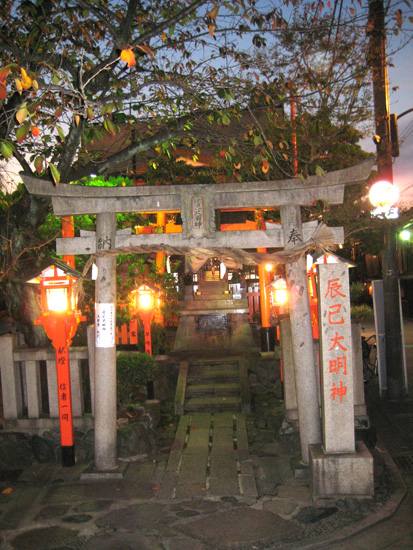This is Gion, the “Geisha District” made famous by the book and movie Memoirs of a Geisha. Perhaps I should call it a “Geiko District”, since in Kyoto a geisha is called a geiko (“art child”) and an apprentice geisha is called a maiko (“dance child”).
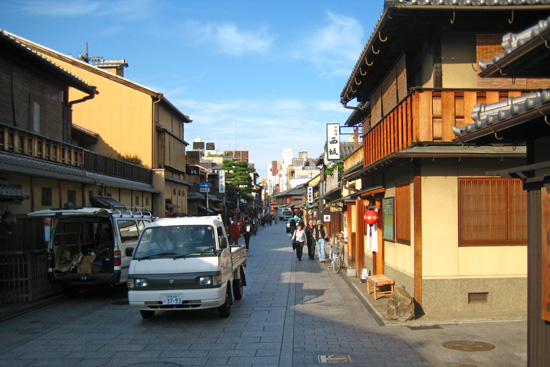
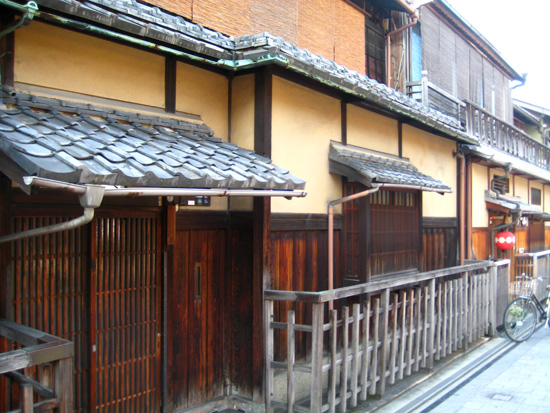
Two off-duty maikos enter a geisha house. (They aren’t dressed for work.)
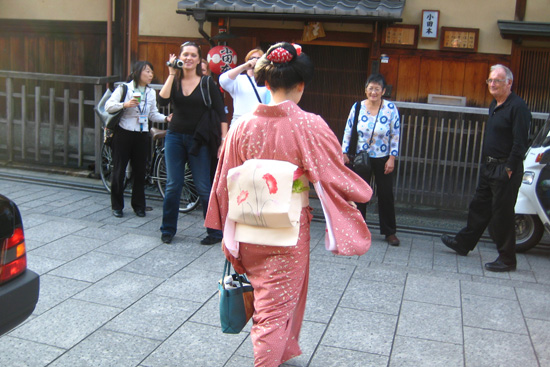
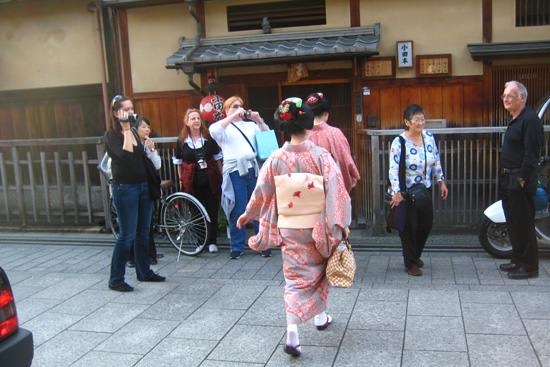
The wooden name-cards on the house indicate that 3 geikos and 5 maikos live there.
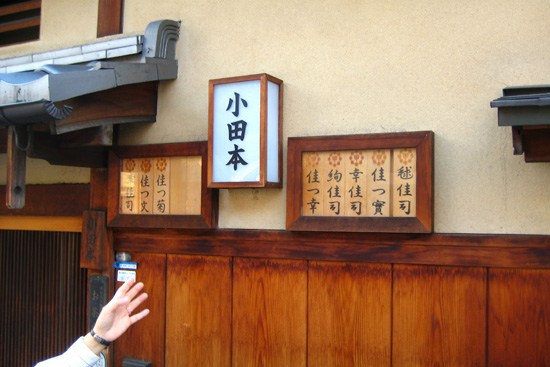
A teahouse.
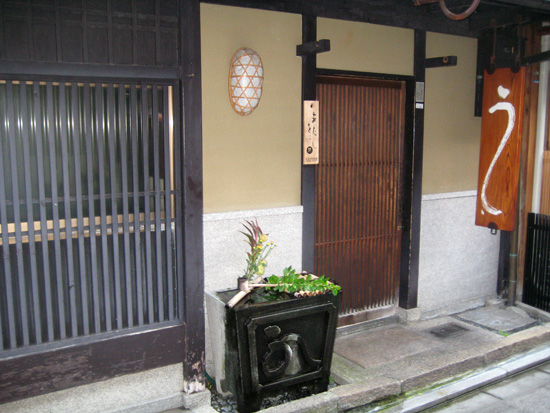
Note the red and white lantern, a symbol of the Gion district.
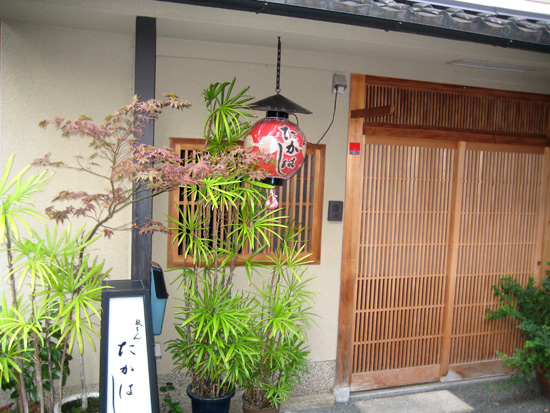
These are teahouse employees, not geishas.
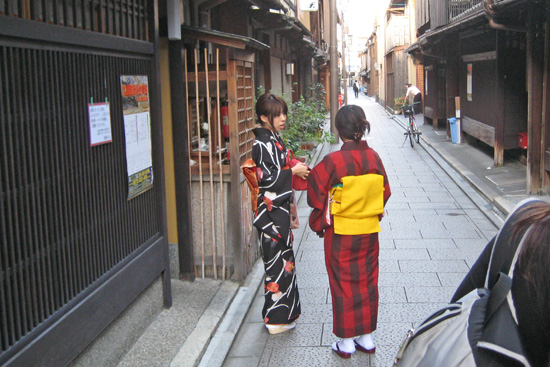
Only the rich and well-connected are likely to be invited to the exclusive teahouses where geikos entertain at private parties. However it is possible to arrange to hire a maiko to entertain ordinary tourists.
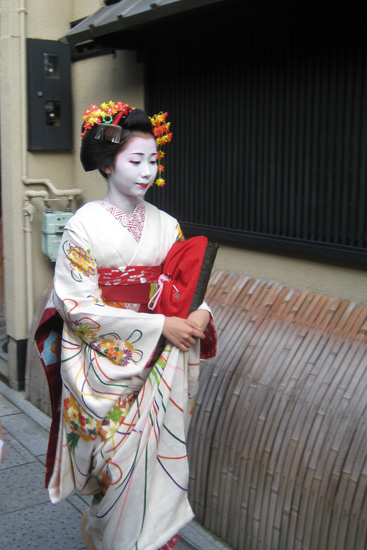
This is Mamehana. She is 17 years old and has completed one year of training, studying dance, music and the tea ceremony.
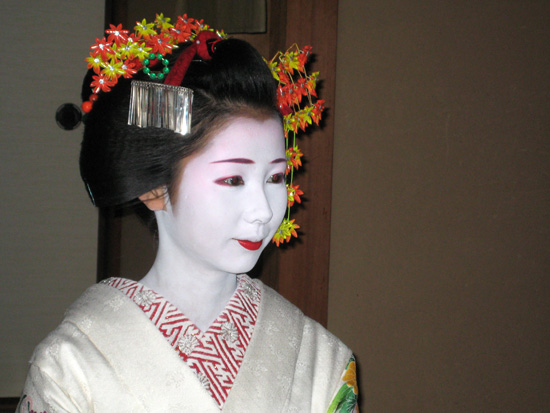
After 5 years of training she will become a full-fledged geiko. She will then be a free agent, able to choose what parties she will entertain at and charge whatever the market will bear. Right now she goes where she is told and receives a small allowance.
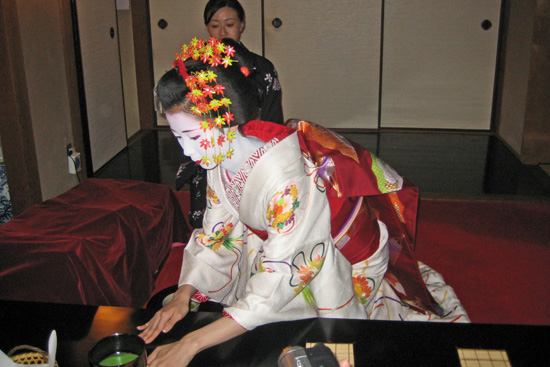
Her business card.
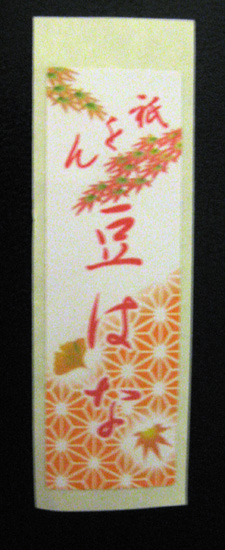
She has seen the movie and considers it entertaining but not very realistic.
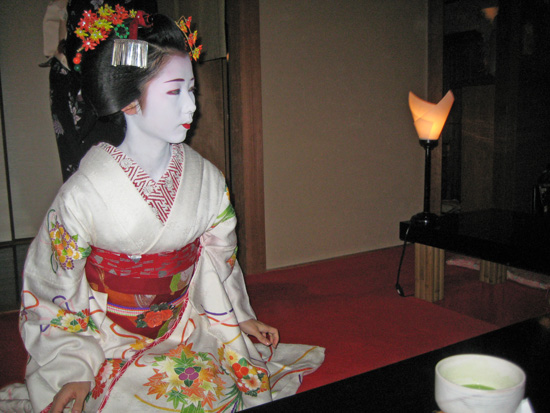
Her kimono, obi and accessories probably cost about US$100,000. She doesn’t own them; they belong to her geisha house. Professional geikos rely on wealthy patrons to finance their equipment.
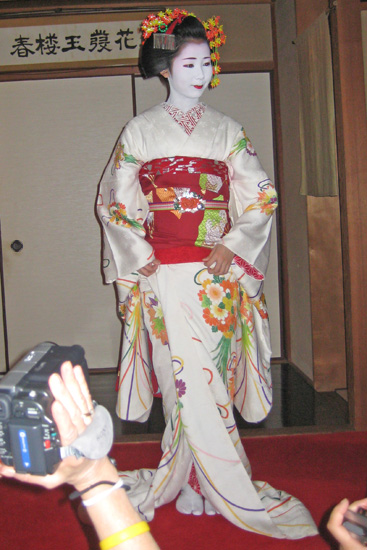
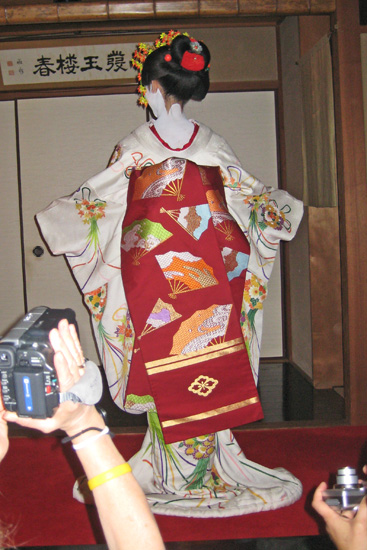
Here she demonstrates the type of traditional dance performed by the geikos of Kyoto. This is not at all like the dancing in the movie. Mai Dance is derived from Noh dramas and is very stylized with symbolic gestures.
This is the bridge where, in the book, nine-year-old Chiyo first met The Chairman.
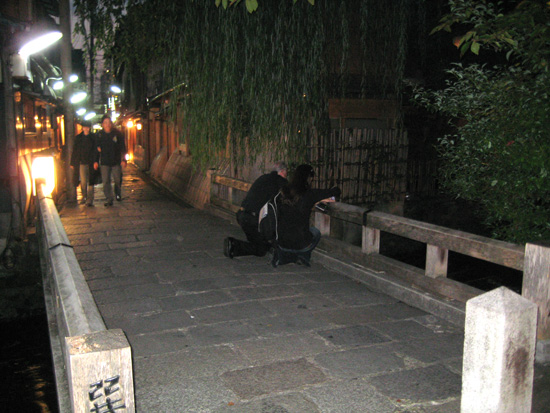
Next to it is the shrine where maikos and geikos come to pray every day.
